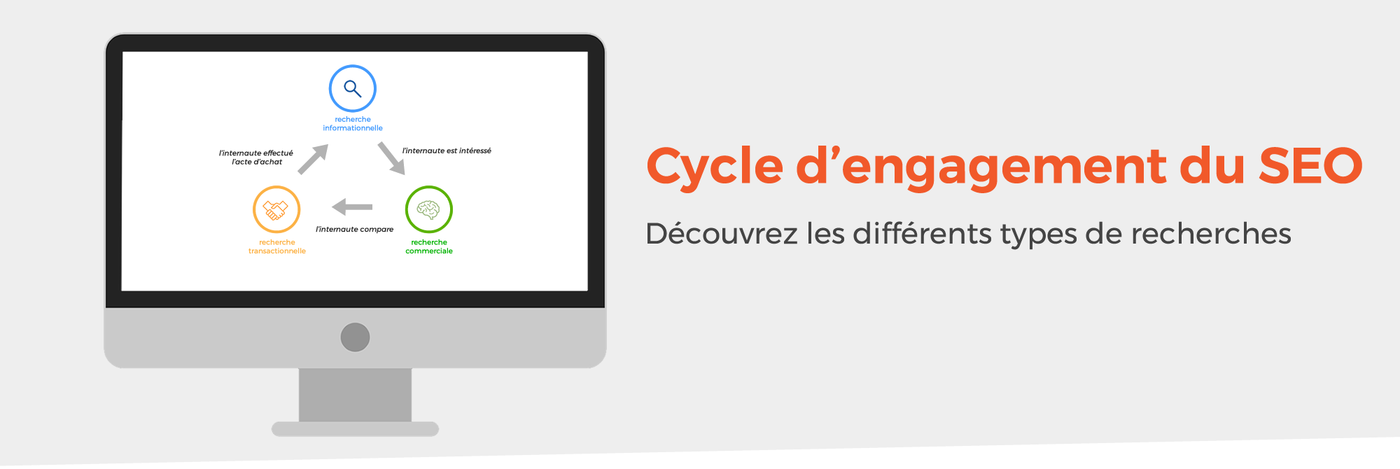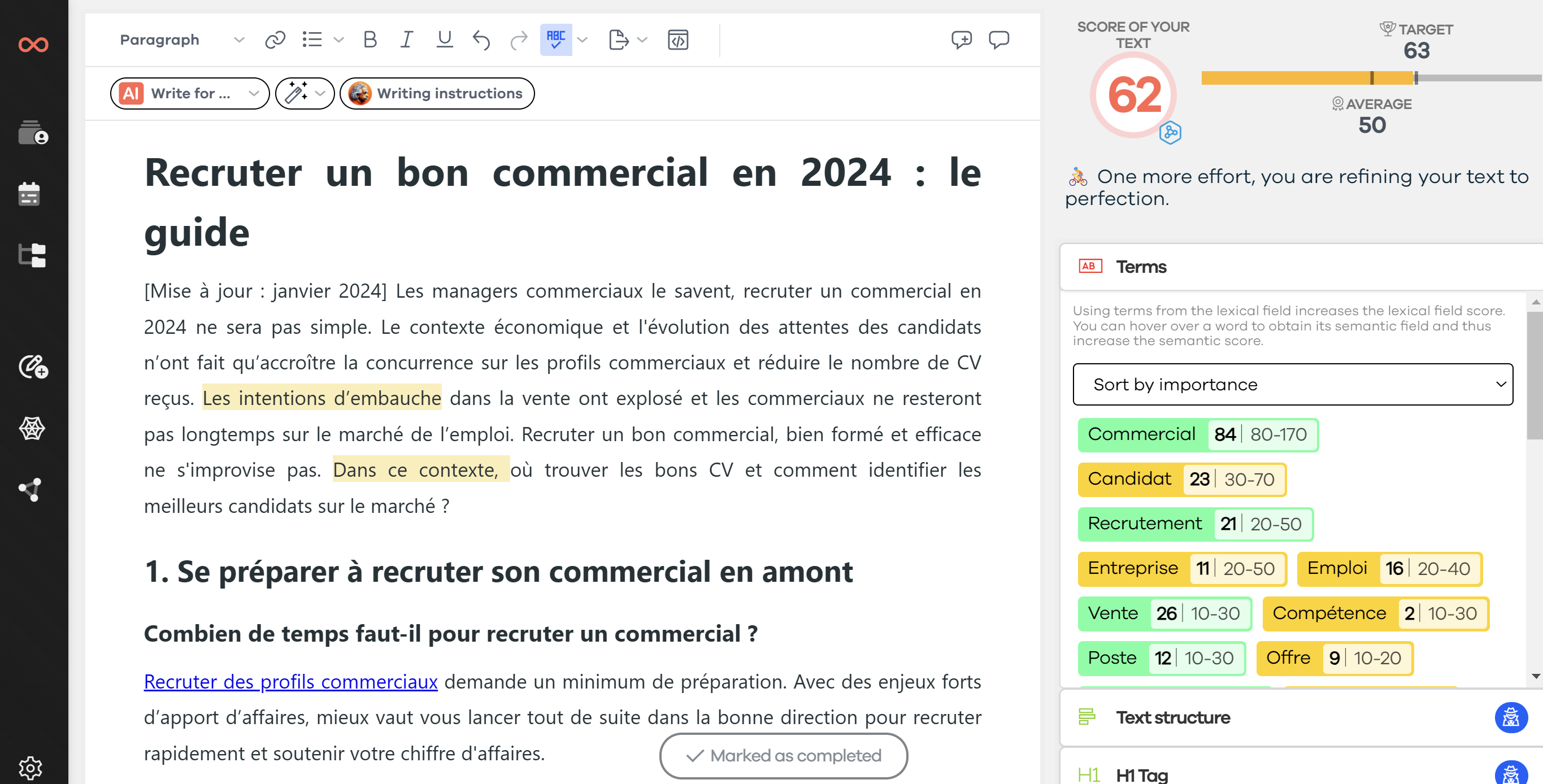Are you tired of working on ineffective content that converts poorly and ranks low? Today, internet users are fickle! To perform, businesses must "mutate" and take the digital turn. The same goes for SEO! You want to become the number 1 expert in your field of activity, be the leading media in your profession and know how to support your client throughout their search journey. Let me briefly introduce you to my method to captivate their attention: semantics and conversion rate, the ally of your success!
💥 Why does semantics improve the conversion rate?
To understand the influence of semantics on the conversion rate, here is first the basics on SEO semantics!
Definition of semantics in SEO: it is all the terms used to give meaning to your keyword. If, for example, you are talking about a mouse, which one is it? A computer mouse or the animal? You will therefore use semantics to contextualize your subject. If your text is about computing, you will add terms like keyboard, Bluetooth, screen, computer, etc.
Therefore, semantics is very important in natural referencing. Indeed, it allows search engines to understand the theme of your content and to judge its quality. Since the updates of the Google algorithm like Rankbrain or Hummingbird, this element has become essential to be visible in the SERP (search engine results page).
As your text is perfectly contextualized, it will be highlighted when it matches the search intent of the googler (see next chapter). This allows you to attract qualified traffic to your website. And who says qualified visitor, says improvement of the conversion rate! QED...
When I was running my SEO agency, I often noticed the extremely positive effects of semantics on my clients' turnover. The result is clear! In addition to improving positioning on Google, semantics is an extremely powerful lever for conducting a conversion campaign.
🤔 What are the different types of "search"?
Before you start your SEO strategy and develop your semantics to improve your conversion rate, you need to understand the search intent of the internet user.
Navigational Search
Therefore, navigational search is most often done by entering the name of a brand or part of a URL. The queries "air france" or "laredoute.fr" for example correspond to this type of request.
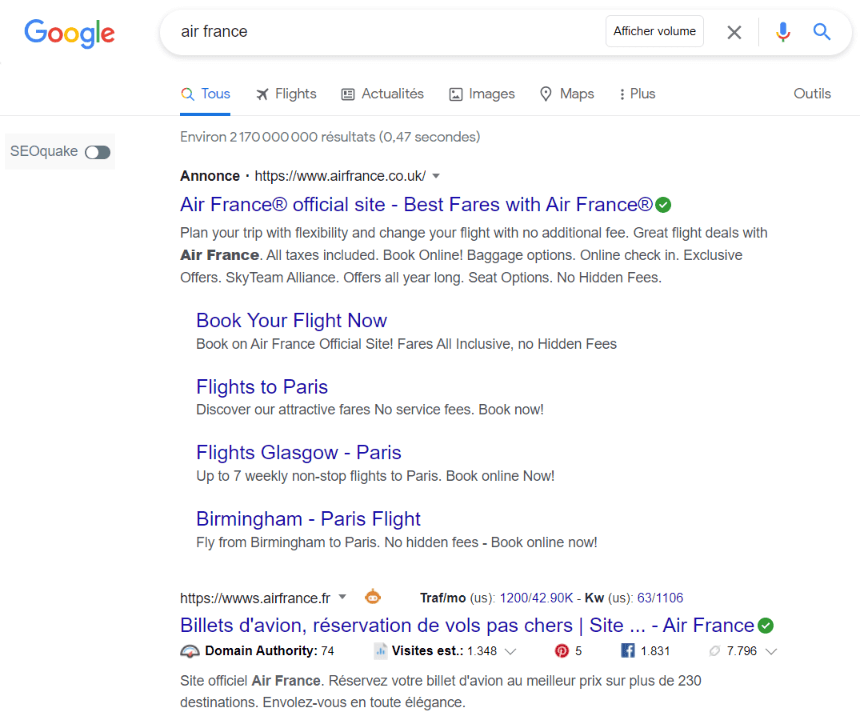
Informational Search
The internet user is in search of information or documentation. Information searches involve a wide range of queries. The common thread here is that searches are essentially non-commercial and not transaction-focused. Information is the only goal and no interaction beyond clicking and reading is required.
This type of search is frequently formulated in the form of a question ("where", "how" and "why"). By analyzing the SERP, you will also notice that the results displayed mainly correspond to blog articles.
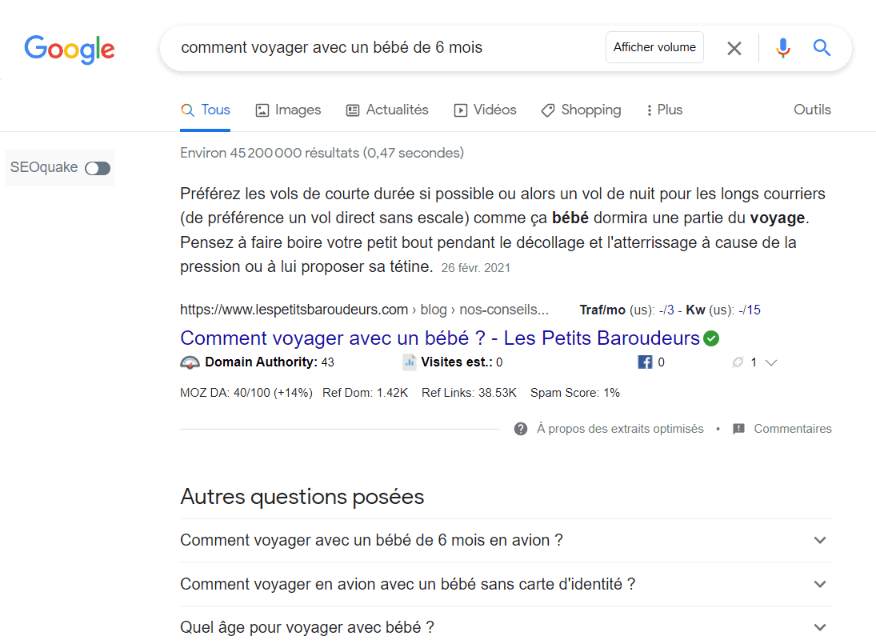
Commercial Search
A commercial search is between the informative search and the act of purchase. The internet user seeks to compare, to evaluate the options offered to him. Here we find everything that is comparator, online guide...
This type of search is not directly transactional and can never result in an exchange of products or services. However, it is not purely informative either. Their goal is to "influence" the internet user.
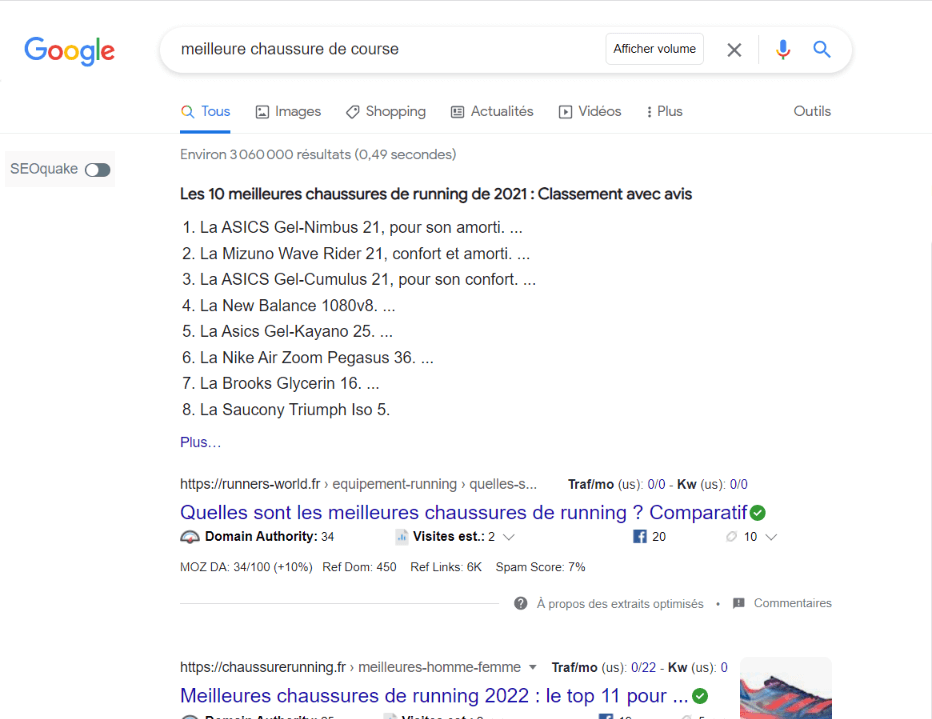
Transactional Search
Transactional searches do not necessarily involve a credit card or bank transfer. A transactional search aims to perform a search with the purpose of performing an action considered as a conversion: purchase, subscription, etc.
This is therefore the type of search on which it is very important to optimize its semantic field! However, they often contain ads at the top of the SERP and are very competitive. But if you offer quality content and have well optimized the on-page and off-page factors, your chances of conversion are excellent!
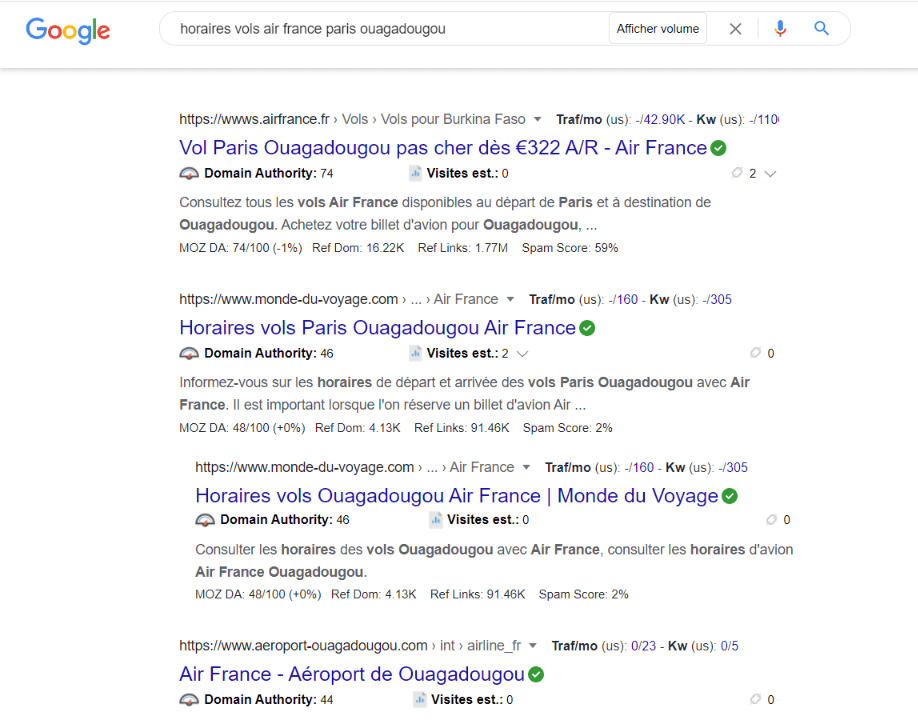
🔎 Which type of search to favor to improve the conversion rate?
A navigational query can only occur when a customer is directly looking for you. Therefore, you cannot really have any influence on it. However, if you are about to launch your business, try not to choose a brand name that is too competitive!
Informational queries are not linked to a purchase intention. Therefore, they are very good for attracting a lot of traffic, but not suitable for improving customer conversion. Therefore, semantic optimization of this type of keyword is not a priority from a purely commercial point of view.
On the other hand, the types of search that interest us are the following: commercial and transactional. Indeed, the internet user affirms his desire to want to buy a service or a product. Thus, you must focus on these types of keywords in order to optimize the semantics of your content and improve your conversion rate.
Moreover, they are often long-tail keywords (they are four words or more). They are very interesting in our specific case, as they allow to attract qualified traffic to your site and therefore to boost the conversion rate!
💱 The SEO engagement cycle
From the segmentation above, we see that the internet user does not have the same level of "maturity" in relation to information. We can make segmentations on the nature and value of the traffic generated by these different searches. Each presents an opportunity, but not all have the same quality or SEO ROI.
By taking the marketing concept of the engagement cycle, I have developed the SEO engagement cycle. The goal is to deliver the right content at the right time, depending on the user's query.
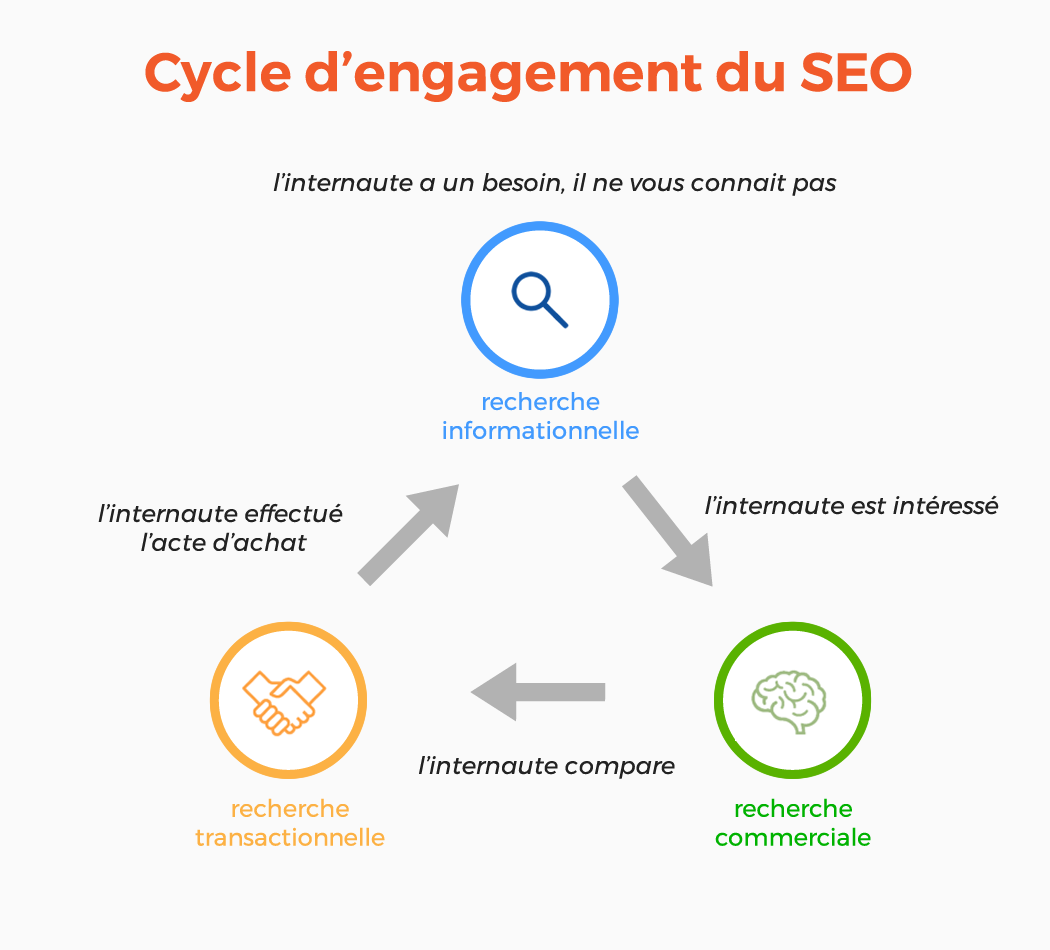
The visibility gained during the SEO engagement cycle becomes the essential challenge that allows to retain attention and respond to the user's intent. It is essential to couple it with a semantic cocoon of several hundred pages that will support the site. The loyalty of the internet user is at this price.
❓ How to operate?
Here are the 2 steps to implement the technique that will boost your sales:
- Start by identifying the keywords you want to work on. You can use tools like SEObserver, SEMRush, Google's Keyword Planner.
- Group your keywords by type of search: Navigational search, informational search, commercial search and transactional search.
1. The different types of content classified by search (the form of your content)
Informational
- Definitions
- Infographics
- Interviews and customer testimonials
- The "how to"/how to do for...
Commercial
- Guides
- Comparisons
- Feedback
- Case studies
Transactional
- Product page
- Landing page
2. Use a keyword matrix
Thanks to the matrix, you will be able to determine where to place ads, where to focus content and calls to action.
| Keyword | Search Volume | Type of Search | User Intent | ROI |
|---|---|---|---|---|
| Best place to travel with baby | 1000 | Informational | Blog, experience, service, idea | € |
| Dominican Republic with baby | 450 | Commercial | Island, samana, medicine, stroller, risk | €€ |
| Book trip Dominican Republic with baby | 250 | Transactional | Additional rate, car seat, stroller | €€€ |
I hope this excursion into the minds of internet users will help you focus your efforts on the best possible content and think carefully about how to use the different types of internet user search depending on their individual intentions.
🚀 Try it out!
I present to you in video my tips for determining the form and content of a high-performing content that will rank in the top positions of Google.
I hope you enjoyed this article and learned new things! Don't hesitate to test the SEOQuantum tool to optimize the semantics of your content. 😉
- What is the importance of the semantic field in natural referencing?
- Why and how to carry out a semantic SEO analysis?
- How to do a semantic SEO audit?
Need to go further?
If you need to delve deeper into the topic, the editorial team recommends the following 5 contents:
